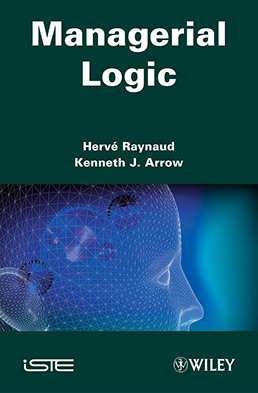
The publication of the first book by Kenneth Arrow and Hervé Raynaud, in 1986, led to an important wave of research in the field of axiomatic approach applied to managerial logic. Managerial Logic summarizes the prospective results of this research and offers consultants, researchers, and decision makers a unified framework for handling the difficult decisions they face.
Based on confirmed results of experimental psychology, this book places the problem in a phenomenological framework and shows how the influence of traditional methods has slowed the effective resolution of these problems. It provides a panorama of principal concepts and theorems demonstrated on axiomatized methods to guide readers in choosing the best alternatives and rejecting the worst ones. Finally, it describes the obtained extensions, often paradoxical, reached when these results are extended to classification problems.
The objective of this book is also to allow the decision maker to find his way through the plethora of “multicriterion methods” promoted by council organizations. The meta-method it proposes will allow him to distinguish the wheat from the chaff.
The collaboration with Kenneth Arrow comes essentially from the fact that his work influenced all subsequent works quoted in this book. His famous impossibility theorem, his gem of a PhD thesis, and his various other works resulted in him receiving the Nobel Prize for economy just before meeting Hervé Raynaud who was at that time a visiting professor at Berkeley University in California. Their mutual publications serve as the basis for the axiomatic approach in multicriterion decision-making.
Part 1. A Paradoxical Research Field
1. The Initial Problem.
2. Paradoxes.
Part 2. A Central Case: The Majority Method
3. Majority Method and Limited Domain.
4. Intuition Can Easily Suggest Errors.
5. Would Transitivity be a Prohibitive Luxury?.
Part 3. Axiomatizing Choice Functions
6. Helpful Tools for the Sensible Decision Maker.
7. An Important Class of Choice Functions.
8. Prudent Choice Functions.
9. Often Implicit Axioms: Sovereignty, Homogeneity, Decision by Rejection or Selection, Prudence and Violence.
10. Coherent Choice Functions.
11. Rationality and Independence.
12. Monotonic Choice Functions.
Part 4. Multicriterion Ranking Functions
13. Sequentially Independent Rankings.
14. Prudent Rankings.
15. Coherent Condorcet Rankings.
16. Monotonic Rankings.
Appendix 1. Benjamin Franklin’s Letter.
Appendix 2. Pyramids and Snakes: Romero’s Algorithm.
Appendix 3. A Few Widespread Commercial Multicriterion DecisionTechniques.
Hervé Raynaud, a former student of the École Polytechnique and Honorary Emeritus Professor of Mathematics, has worked with about 20 academic organizations around the world. A former psychoanalyst, researcher, and international consultant, he is now teaching at the Sigmund Freud University of Vienna, in its Paris branch, and at the Conservatoire National de la Villette in France.
Kenneth J. Arrow is an American economist and joint winner of the Nobel Memorial Prize in Economics with John Hicks in 1972. His most significant works deal with social choice theory, notably "Arrow's impossibility theorem" and his research on general equilibrium analysis. He is currently the Joan Kenney Professor of Economics and Professor of Operations Research, Emeritus at Stanford University.